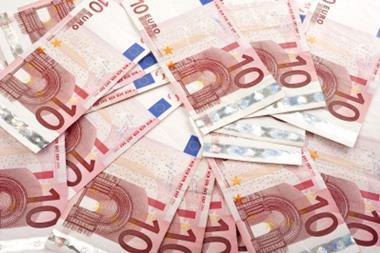A rather unglamorous frozen food and freezer chain, Iceland’s shares were 113 times oversubscribed when the company went public in 1984. It grew steadily until 1996, when pre-tax profits fell by 23%. Operating profits improved in 1997, but the retail climate remained competitive.
As he struggled to rebuild profits, company founder Malcolm Walker began getting letters asking about the company’s stance on genetically modified foods. He did not know anything about GM foods, so he asked - and was appalled. That was in 1997.
Walker was in tune with the British public. After all, he had built the company from nothing with his partner Peter Hinchcliffe. Now, he touched the nerve of public concern about food safety. Under the banner, ‘Food You Can Trust’, Iceland was pushing itself forward in a crowded and competitive market for price conscious consumers.
After eliminating GM ingredients from Iceland’s own brand foods, the company moved on to confront other food production practices, removing artificial flavouring and colours, and eliminating artificially induced colour in egg yolks. Sales and, more significantly, operating profits rose. The policy culminated in the June 2000 decision to take all Iceland’s frozen vegetable range organic ‘at everyday supermarket prices’ by October.
Supermarket chains in the UK so dominate the consumer food market that their power makes them natural targets for social campaigners when it comes to eating habits. Iceland has used this to enhance its reputation, presenting itself as the champion of the nutritional underdog. For instance, it has developed a ‘Cool Food’ book in association with the British Dietetic Association, to be sent free to almost 25,000 primary schools in the UK.
Mr Green
It made a good story: Macolm Walker, maverick businessman, taking leadership of the industry - the Mr Green of British retailing, one paper called him. The column inches followed:
“King of Cool with a Warm Heart for Nature,” was the Scotsman’s story on 29 May 2000. “The Iceman Cometh: Malcolm Walker, founder of Iceland, leads a double life: City predator by day and eco-warrior by night,” said a profile in Sunday Business.
While media attention focused on Malcolm Walker and the greening of Iceland, the company was looking at ways to compete by better distribution. In 1999, it launched a nationwide internet home shopping service. Then, in May 2000, it announced a merger with cash and carry leader, Booker, which took effect in June. Synergies of £20m were promised for the first year, £50m for the second.
The stock market’s immediate response was tepid. Merrill Lynch retail analyst Sara Carter says her initial reaction was mixed. She thought the merger was defensive on both sides, but also saw it as positive because of the merger benefits. These, it turns out, are taking longer to emerge than originally projected, and analysts have turned sceptical again.
Corporate governance
In its annual report for 1999, Iceland stated that throughout the year, it had been in compliance with the provision of the Combined Code on Corporate Governance with the temporary exception of the composition of the audit committee, and the fact that not all the executive directors had one year contracts. Another departure from recommended practice was that the roles of chairman and chief executive were held by one person, Malcolm Walker. The directors considered this “appropriate for the company at the present time.
Following the merger, the group retained both brands. Malcolm Walker became executive chairman of the combined group, with Bookers’s Stuart Rose as chief executive. Charles Wilson was managing director of the Booker subsidiary and Russell Ford managing director of the Iceland subsidiary. Andrew Pritchard continued as group finance director. The non-executive directors from each of the constituent boards became non-executives on the combined holding company board.
Coal in the Christmas stocking
The 2000 financial year started well. Food sales were up six per cent over the first six months of 1999 and pre-tax profits up 10%. Iceland and Booker were integrating well. ‘The cultures of Iceland and Booker are proving genuinely complementary. We are pleased to report that our executive teams at and below board level are working well together and are enthusiastically committed to maximising the potential benefits of combining the two businesses,’ enthuses the interim statement.
Iceland went ahead with its organics only range in October, as planned. The former executive director of Greenpeace UK, Peter Melchett, joined the group as part-time environmental and ethical adviser.
On 13 November 2000, the two most senior former Booker executives, Stuart Rose and Charles Wilson, defected to high street fashion group, Arcadia. Malcolm Walker temporarily resumed his former responsibilities as chief executive, but in December announced the appointment of a new chief executive with a strong reputation in the retail sector. Bill Grimsey, who had been chief executive of Wickes for four years, was to join Iceland on 2 January 2001.
Iceland’s shares continued on a rising trend. When, on 4 December, Malcolm Walker sold four million shares for £13.6m, it provoked little comment, perhaps partly because he had already indicated his intention to reduce his role to non-executive. The share price continued to rise, reaching its 12 month peak just over a week later. A group of food analysts spent two days with the Iceland management on Deeside and apparently got no sense of impending calamity.
Bill Grimsey duly took over as chief executive on 2 January. Six days later, more executive changes were announced. Group finance director Andrew Pritchard was appointed managing director of Iceland’s food retailing business. Bill Hoskins, formerly a colleague of Bill Grimsey’s at Wickes, took over as group finance director a week later. The resignation of Russell Ford, regarded as one of the main backers of the organic policy, was announced in a terse statement: “(He) has decided, following the appointment of Bill Grimsey as chief executive, to leave the company.”
The announcement of the group’s Christmas trading figures on 22 January 2001 was an unpleasant surprise for the market. Over the important four weeks of December, Iceland’s sales had fallen 5.5% compared to 1999. For the second half of the year, the reduction was 1.5% on a comparable basis. The statement blamed this on the reduced level of promotional activity and on the switch to organic products, ‘which has not matched the company’s expectations’.
Sourcing as many organic vegetables as Iceland needed was clearly not easy. Much of the produce had to be purchased abroad. Retail lawyer Peter Rice says that, from his experience at leading retailers, such as Marks & Spencer, the big risk is that the store “hasn’t got the right merchandise or hasn’t got it at the right time.” Continuity of supply is particularly critical during the intense trading period before Christmas.
Another issue was choice. Iceland recently told its shareholders: ‘Sales performance in the second half of last year demonstrated that the conversion of Iceland own brand ranges to organic, with no conventional alternative was not what our customers wanted.’ Says Peter Rice: “Consumers do not like to be dictated to.”
Analyst Sara Carter believes that the decision to go wholly organic was “a natural extension to the previous anti-GM stance, which had been very beneficial in terms of publicity.” However, she says: “It was foolish to commit rigidly to such a policy when supplies couldn’t be secured and when customers weren’t as passionate about it as Malcom Walker was.
As the share price collapsed, attention began to focus on the chairman and his four million share sale. Walker was on holiday with his family in the Maldives when the storm broke, and for a week the papers were full of speculation about his future. On 31 January, the company published a financial and operational review - with a profit warning. The profit before tax, amortisation of goodwill and exceptional items would be significantly below expectations and unlikely to exceed £62m for the 15 month period to 30 March, the group’s new year end.
Malcolm Walker’s resignation was announced the same day - 30 years to the week since he had become a full time employee of the company. He stated that, in light of the intense media speculation and interest, it would be best to resign to allow the new chief executive to get to grips with running the business ‘without unnecessary distractions.’ David Price, one of the non-executive directors and the chairman of Foreign & Colonial Management, took over as non-executive chairman.
The ‘unsuccessful implementation of the launch into organic foods’ had been revealed a week earlier. It also turned out that synergies of the Booker merger were taking longer to realise than expected. The benefits in the current accounting period would be about £8m, compared to the £20m anticipated.
Bill Grimsey seemed to be following the rule that if you let the market know the worst, then it will discount the effect, and that this will ultimately be reflected in the stock price. In the words of the Sunday Telegraph of 4 February: ‘As kitchen sink operations go, Grimsey seemed to have trumped them all. It looked as if he had got all the bad news he could possibly think of and blurted it out in one go’ - a fair summary.
The price, which had peaked at 346p in mid-December, continued to fall, but began to rise again slowly after reaching its lowest point of 141p in mid-February. However, worse was to come. The announcement of the second interim results for the year to 30 December 2000 brought with it another profit warning for the 15 months to the company’s new fiscal year end at 30 March. Profits projected at not more than £62m were now not expected to exceed £40m.
Among the reasons was another £7m attributed to the switch to organic foods, because gross margins for the full year 2002/03 and the first six months of 2003/4 would be reduced. The Christmas trading statement had said: ‘The positioning of organic lines is being reviewed to ensure that the food offer more closely aligns with customer demand.’ The second interim report on 15 March put it: ‘In particular, the flawed implementation of the organic food proposition has to be corrected, through re-positioning of the frozen food offer.’
Having discovered that he was running a second recovery, - Wickes being the first - Bill Grimsey has been open and accessible to the financial press, not afraid to let people know of Iceland’s problems, the better to turn them around. Sara Carter’s view is that there is a good chance of recovery mid-term, although she remains neutral in her view of the long term profit potential for the group, as it is clearly a mature business.
Issues
Attention in the media has highlighted the failure of Iceland’s customers to share the store’s organic commitment, but the issues are not so simple.
Led by a charismatic chairman, the executive made a decision which did not work. It may simply have been an issue of execution, but the company is tied into some long term contracts.
Conclusion
It may turn out that, as for so many other companies, the merger was at the heart of Iceland’s problems. Perhaps without the merger, Malcolm Walker would have been able to pull off the switch to organic food. Perhaps he underestimated the difficulty of sourcing the supplies.
The new chief executive and finance director believe they can turn the company’s performance around, but that it will take time. ‘The group is in a recovery phase and the company is prepared for the lengthy process of rehabilitation.’
Bill Grimsey has promised that a plan for the strategic development of each business area within the group will be completed by the end of June. The statement indicates clearly where attention is needed: ‘Above all, the right calibre of senior management must be developed.’
The market hopes that all the bad news is out and that Iceland can rebuild its position. It could gain from an economic slow down - if health and environmentally conscious buyers think that it offers a way to maintain the food quality that they want at a lower price.
The management statement of 15 March results concludes positively: ‘The new management team is confident that the unique mix of retail, wholesale and catering business activities provides a platform to create real value for shareholders.’
Lee Coppack, who specialises in writing on risk management and insurance related topics, including reputation management, is market analyst, StrategicRISK



















